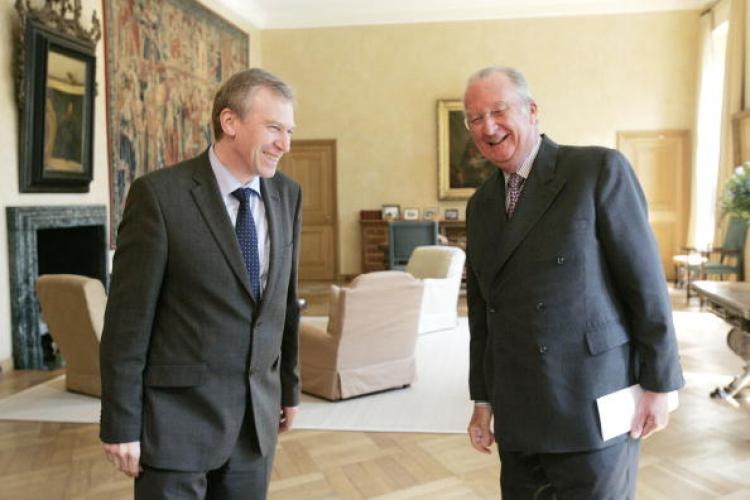A deeply rooted dispute between Dutch-and French-speaking parties caused the fall of the Belgium government. Belgium Prime Minister Yves Leterme visited King Albert II to tender his government’s resignation on Thursday. The king is considering his resignation.
The Dutch-speaking Liberal Party, Open Vld, quit the ruling coalition after the deadline passed for the governing partners to reach an agreement on a complex re-organization of the Brussels-area electoral district.
“We are the end of our rope,” Guy Vanhengel, a Flemish Liberal, was reported saying in the Guardian. “I think that efforts to come to a negotiated settlement are not succeeding.”
Belgium is divided into Dutch- and French-speaking regions. The northern part bordering the Netherlands speaks Dutch while the southern part bordering France speaks French. Historically, the political landscape in Belgium has been likewise divided into Dutch- and French-speaking camps.
The electoral district of Brussels is the only bilingual district in Belgium, composed of the capital city and 35 surrounding Flemish municipals.
In 2003, the constitutional court ruled that breaking up the Brussels-area voting district is illegal. Since that time, Dutch-and French-speaking parties have been trying to negotiate a solution but to no avail. Initially, the deadline for a solution was set for Easter 2010, but that was missed, as was the extened deadline for April 22.
Flemish politicians are accused of trying to block French speakers from moving to the Flemish municipalities out of fear of losing political power to the French camp.
This is not merely a linguistic dispute, but it is a historic struggle about identity and economics between 6.5 million Dutch speakers and 4 million French speakers.
The far-right Flemish party Vlaams Belang, which seeks independence from French Belgium, called the crisis “the ultimate proof of Belgium’s bankruptcy.”
Yves Leterme was also prime minister in 2008, but he was forced to step down for allegedly trying to influence the judiciary. He was succeeded by the current EU President Herman Van Rompuy, and then regained power in Belgium in November 2009. This makes the second time that the government has fallen in just over one year.
The Dutch-speaking Liberal Party, Open Vld, quit the ruling coalition after the deadline passed for the governing partners to reach an agreement on a complex re-organization of the Brussels-area electoral district.
“We are the end of our rope,” Guy Vanhengel, a Flemish Liberal, was reported saying in the Guardian. “I think that efforts to come to a negotiated settlement are not succeeding.”
Belgium is divided into Dutch- and French-speaking regions. The northern part bordering the Netherlands speaks Dutch while the southern part bordering France speaks French. Historically, the political landscape in Belgium has been likewise divided into Dutch- and French-speaking camps.
The electoral district of Brussels is the only bilingual district in Belgium, composed of the capital city and 35 surrounding Flemish municipals.
In 2003, the constitutional court ruled that breaking up the Brussels-area voting district is illegal. Since that time, Dutch-and French-speaking parties have been trying to negotiate a solution but to no avail. Initially, the deadline for a solution was set for Easter 2010, but that was missed, as was the extened deadline for April 22.
Flemish politicians are accused of trying to block French speakers from moving to the Flemish municipalities out of fear of losing political power to the French camp.
This is not merely a linguistic dispute, but it is a historic struggle about identity and economics between 6.5 million Dutch speakers and 4 million French speakers.
The far-right Flemish party Vlaams Belang, which seeks independence from French Belgium, called the crisis “the ultimate proof of Belgium’s bankruptcy.”
Yves Leterme was also prime minister in 2008, but he was forced to step down for allegedly trying to influence the judiciary. He was succeeded by the current EU President Herman Van Rompuy, and then regained power in Belgium in November 2009. This makes the second time that the government has fallen in just over one year.





